The overhaul of the national curriculum for basic, senior secondary, and technical education has been a pressing necessity for quite some time. I have consistently advocated for revamping an educational framework that no longer aligns with the demands of our contemporary world. Yet, noble intentions alone cannot guarantee success. I came perilously close to becoming part of the out-of-school youth statistics, but thanks to my family’s unwavering commitment to education, I recognize how access to learning can dramatically alter one’s life path. While I am not a formal education expert or academic, my background in design thinking has taught me that ideas hold little value without effective implementation.
When the Ministry of Education announced on August 31, 2025, that the revised curriculum would be rolled out starting with the 2025/2026 academic year, I felt a mix of hope and apprehension. Although these reforms are eagerly awaited, the existing educational infrastructure appears ill-prepared to support such sweeping changes. Systems entrenched for decades require meticulous planning to avoid turning innovation into chaos. For instance, how thoroughly were stakeholders consulted, and is there solid evidence that the current framework can sustain these expectations? In project management, large-scale initiatives typically undergo pilot phases. Testing the curriculum in select, strategically chosen regions before a full-scale launch could have mitigated risks.
We cannot ignore the stark socio-economic disparities that permeate our nation, which inevitably affect educational outcomes. Expecting uniform results from schools in underserved, moderately served, and well-resourced areas defies logic. Pilot programs allow for controlled environments where mistakes are less damaging and variables can be managed. While innovation is essential, its execution demands a nuanced grasp of the critical factors driving success. Familiarity with concepts like alpha, beta, and gamma testing is not exclusive to tech enthusiasts; these stages ensure smooth transitions. Without a phased rollout, abrupt changes risk destabilizing the system, turning schools into reactive entities rather than proactive leaders of change.
Curriculum Content and Vision
Introducing more practical and relevant subjects is a positive step, but the curriculum’s core objectives must resonate throughout the material. In today’s world, where information can be weaponized, education must transcend rote learning to shape critical thinking and worldview. Civilization is propelled by four pillars: politics, economics, religion, and culture-with culture encompassing media, education, and the arts. What transformative impact do we want education to have beyond academic achievement? Take geometry, for example; it’s not merely about calculating angles but fostering analytical reasoning and problem-solving skills. Parents often choose schools not just for the syllabus but for the holistic programming that molds their children’s mindset.
The curriculum should emphasize practical application. Artificial intelligence, for instance, has vast potential-how can we tailor its teaching to address Nigeria’s unique challenges? The inclusion of data science and cybersecurity offers opportunities to solve pressing issues like the absence of a unified national database. This gap leads to repeated registrations and misallocated resources meant for vulnerable populations. By contextualizing these subjects locally, we might finally develop indigenous solutions to systemic inefficiencies that have long plagued our institutions.
Funding and Resources
Even before this curriculum update, education funding was woefully inadequate. What strategies are in place to finance these reforms? Proper budget allocation is critical, but so is accountability. Too often, funds are disbursed without thorough needs assessments or diagnostics. Many schools don’t require structural renovations but rather essential learning tools and environments where students aren’t forced to sit on bare floors.
Teacher capacity is another vital component. Educators must be retrained or recruited to meet new demands. Without equipping teachers with the necessary resources and support, the curriculum’s potential will remain unrealized. Given that education falls under concurrent legislative jurisdiction, coordination between federal and state governments is crucial. A meaningful way to honor teachers this year would be to improve their remuneration, enabling them to focus fully on their professional responsibilities without undue personal hardship.
Learning Environments: People and Processes
Recent viral incidents highlight the urgent need to address the environments where education occurs. Videos showing students engaging in substance abuse in boarding schools and cases of child abuse disguised as discipline reveal systemic failures. Updating curriculum content without reforming the learning spaces and personnel is futile-like trying to fill a sieve with water. Many students struggle not because of the material but due to the quality of instruction and school culture.
Monitoring, Evaluation, and Stakeholder Engagement
How will we measure whether the curriculum’s goals align with actual outcomes? Clear reporting structures and active involvement of all stakeholders-parents, teachers, school leaders, community members, and education officials-are essential. Too often, initiatives falter because those responsible lack ownership of the vision. I have firsthand experience with educational programs such as Code Lagos, Ready Set Work, and Lagos Reads, which aimed to equip students with coding skills, workplace readiness, and a love for reading, respectively.
For Ready Set Work, beyond weekday office duties, we conducted weekend sessions at various institutions and held Sunday evaluation meetings at the Public Library in Yaba, Lagos. This rigorous schedule ensured continuous feedback and quality control. My commitment to education reform is grounded in practical involvement, not mere commentary.
People-Centered Policies for Lasting Impact
The ultimate measure of success is improved learning outcomes for students; everything else is secondary. This curriculum revision offers a chance to redefine education for a new generation-if managed with care. The Human Development Index (HDI), which gauges a nation’s progress in health, knowledge, and living standards, should guide our priorities. While Nigeria boasts the largest population of out-of-school children globally, investing in education is a matter of national security. Without intervention, we risk fostering environments conducive to social instability. My passion for development economics stems from a belief in policy’s power to shape societies. I am hopeful this reform will succeed and set a new standard for education in Nigeria.



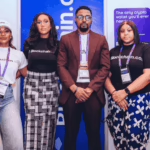





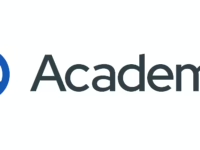
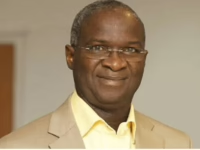






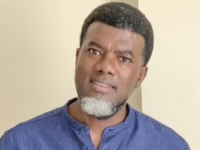


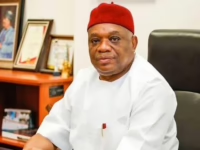

0 Comments